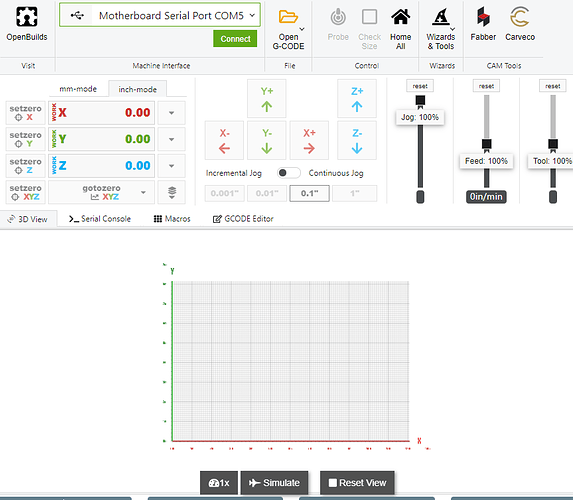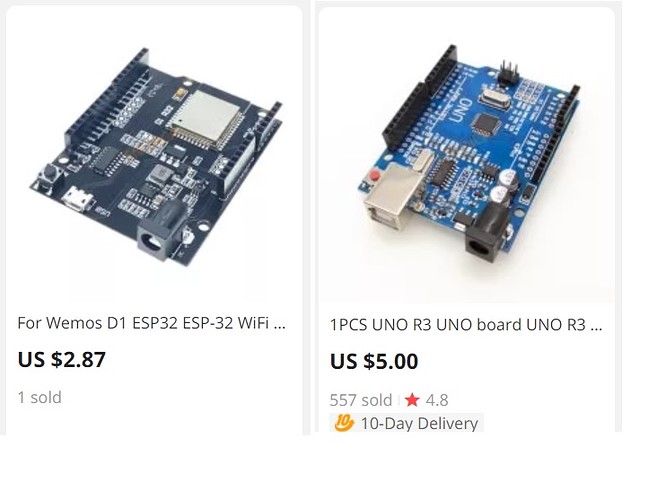. which one are you using. by the way if i am using auto squaring how would i hook it up, would it be in parellel. anyway you or someone could point me to a wiring diagram how that would work.
do you have the mks gen in yours
how good do the mega 2560, I heard they are really slow is that true
Slow is always relative.
Remember that these boards get used on 3D printers that move the print head in excess of 150mm/s on a regular basis. They’re certainly more than fast enough for a CNC that won’t see 1/3 of that speed.
That said, I did upgrade my MKS Gen L v1.0 for a faster 32bit board, because I wanted to be able to handle curves. The CAM can be configured not to use curves, and to cut curves into short straight lines. Most of the time, you’d never see the difference, and it’s nothing that a touch of sandpaper won’t fix for you. Ultimately, that’s what the board does when it calculates the curve too, but making the CAM do it offloads the computationally expensive part to your computer’s processor. Part of my upgrade was to get features like Wifi, and the web control system, as well as the ability to do additional on-board processing.
Those 8bit Arduino clone chips get used for all kinds of CNC and 3D printer work, because they’re capable of handling what the rest of the hardware can. Very few 3D printers are going to be able to process melting and depositing plastic faster than they can control it, and even fewer CNC machines are going to be able to sling a router around faster than they can keep up with. Even for something as “simple” as pen plotting, the Mega2560 or Mega328 are fast enough, so long as they’re given gcode within their capabilities.
I can’t say enough about the OpenBuilds control box. Plug and play, has all the ports one could want. It is a bit pricey (over 10x the cost of a uno & shield), and you need to run it with a PC - But you can control that setup remotely with a tablet or phone.
I run mine at 24V and the OpenBuilds control software interfaces nicely, has a lot of built in features - XYZ calibration tools, bed surfacing, job simulation, visual representation of job as it is running and more.
Having run grbl on both a mega2560 and an esp32, I can say with confidence that unless you are wanting faster laser etch (and you have the laser and material to do so) then a mega will be all you need. The mega was totally fine for anything Cnc on my 5axis mpcnc (same diff as low rider). It was only until I realized the mega was too slow to laser etch much faster than 20mm/sec that I went for more power with the esp32. So now with the esp I can etch mdf at 50mm/sec and get good contrast… but still have to use 20mm/sec for hardwoods anyways. So the mega is amazingly capable, and only edge use cases with lasers will benefit from 32bit. With the support you get with mega, you have to think hard and want to work for it if you go 32bit grbl.
I wholeheartedly agree Kev, but the time will come when 32bit is cheaper than a Mega and all the development will be with the newer platforms, infact… 32bit is already cheaper in some cases…
The writing is on the wall!
I was able to get the rumba32 for 30 dollars, going to have to do a little editing to firmware. I got to remember my programming been a while.
Well I cannot argue with that. In fact the past week of upgrades to my printer have forced me into 32bit. With all the other features I was using in Marlin, even with 3point bed leveling I had less than 1K ram left to spare. Now that I got a bltouch and want 5x5 ubl, I have no choice but to upgrade. I am crossing fingers this also helps with issues I have been dealing with usb comms (stuttering octoprint).
Damian,
What teething troubles did you have? I’m about to hit the button and buy one… which drivers are you using? I have a whole pile of TMC2209’s but I’m not sure if they’re going to work.
I’m using external drivers.
This is one that will handle the external drivers and uses the Arduino as well. Great connectivity.
I had some issues with my build of grbl_esp32, the drivers themselves have been great. Specifically when I built it using the Arduino IDE it pulled in incorrect versions of some libraries which resulted in weird glitches (it would lose position). I rebuilt using PlatformIO and after that it’s performed flawlessly.
I found out what my problem was with the vscode, I was adding a bunch of addon’s I didn’t need and it was giving error when i would build. I uninstalled then install platformio, and the other 2 addon’s and it compiles everything good

